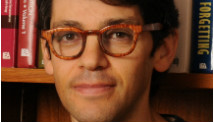The president, chief financial officer and top lawyer for Chicago's red light camera company resigned this week amid an escalating corruption scandal that has cost Redflex Traffic Systems Inc. its lucrative, decadelong relationship with the city.
The resignations came as Redflex said it was winding down a company-funded probe into allegations of an improper relationship between the company and the former city transportation manager who oversaw its contract until 2011, a relationship first disclosed by the Tribune in October. A longtime friend of that city manager was hired by Redflex for a high-paid consulting deal.
The company recently acknowledged it improperly paid for thousands of dollars in trips for the former city official, the latest in a series of controversial revelations that have shaken Redflex from its Phoenix headquarters to Australia, the home of parent company Redflex Holdings Ltd.
Mayor Rahm Emanuel's administration banned the company from competing for the upcoming speed camera contract and went further last month by announcing that Redflex would lose its red light contract when it expires in June. The Chicago program, with more than 380 cameras, has been the company's largest in North America and is worth about 13 percent of worldwide revenue for Redflex Holdings. Since 2003 it has generated about $100 million for Redflex and more than $300 million in ticket revenue for the city.
In an email addressed to all company employees, Redflex Holdings CEO and President Robert T. DeVincenzi announced the resignations of three top executives in Phoenix: Karen Finley, the company's longtime president and chief executive officer; Andrejs Bunkse, the general counsel; and Sean Nolen, the chief financial officer. Their exits follow those of the chairman of the board of Redflex Holdings, another Australian board member and the company's top sales executive who Redflex has blamed for much of its Chicago problems.
"Today's announcement of executive changes follows the conclusion of our investigation in Chicago and marks the dividing line between the past and where this company is headed," said DeVincenzi, who took over as CEO of the Phoenix company. "This day, and each day going forward, we intend to be a constructive force in our industry, promoting high ethical standards and serving the public interest."
The company also held town hall meetings in Arizona to unveil reforms, including new requirements to put all company employees through anti-bribery and anti-corruption training, hiring a new director of compliance to ensure that employees adhere to company policies and establishing a 24-hour whistle-blower hotline.
The resignations and a second consecutive halt to public trading of the company's stock are the latest in a string of events that followed Tribune reports last year regarding 2-year-old internal allegations of corruption in the Chicago contract that the company previously said were investigated and discounted.
The scandal now enveloping the company centers on its relationship to former Chicago transportation official John Bills, who retired in 2011 after overseeing the company's contract since it began in 2003.
A whistle-blower letter obtained by the Tribune said Bills received lavish vacations directly on the expense report of a company executive and raised questions about improper ties between Bills and a Redflex consultant who received more than $570,000 in company commissions.
Bills and the consultant, a longtime friend, have denied wrongdoing.
The company told the Tribune in October that its investigation into the 2010 letter found only one instance of an inadvertent expenditure for Bills, a two-day hotel stay at the Arizona Biltmore expensed by the executive. Redflex lawyer Bunkse told the newspaper that the company responded by sending the executive to "anti-bribery" training and overhauling company expense procedures.
But after additional Tribune reports, the company hired a former Chicago inspector general, David Hoffman, to conduct another investigation. Hoffman made an interim report of his findings to company board members this month. That report prompted the company officials to acknowledge a much deeper involvement with Bills, including thousands of dollars for trips to the Super Bowl and White Sox spring training over many years.
The chairman of the company's Australian board of directors resigned, trading on company stock was temporarily suspended and the company acknowledged that it is sharing information with law enforcement.
Trading was halted again this week pending more details about the company's latest actions.
dkidwell@tribune.com

